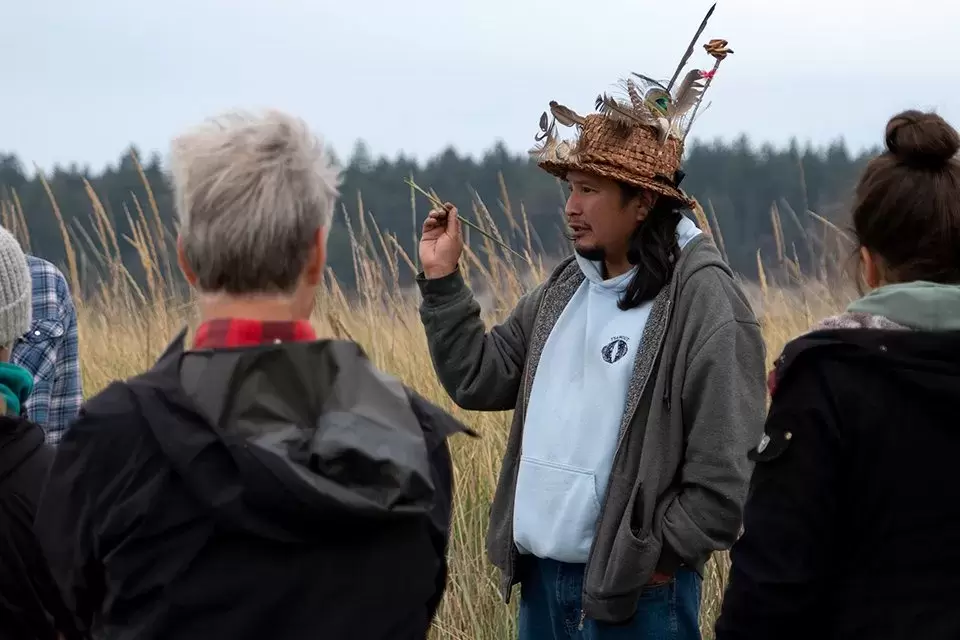The University of Victoria is benefiting greatly from the new federal budget. On March 19th, the federal government announced they were granting $9.1 million to the university for the building of a new National Centre for Indigenous Law and Reconciliation. Last September, the school launched the world’s first combined degree program in Indigenous legal orders and Canadian common law (the JD/JID program), and now that program will have additional space to work from.
UVic President Jamie Cassels said the centre will “will play a vital role in helping to grow a more just and inclusive Canada—socially, economically and legally.”
“This learning and research centre, and UVic’s Indigenous law degree program, are part of UVic’s commitment to the Truth and Reconciliation Report and Calls to Action to establish Indigenous law institutes for the development, use and understanding of Indigenous laws,” he said.
According to the UVic press release, the design of the building will be based primarily on Coast Salish values and cultural symbols, to honor the territory on which the university lies—that of the Songhees, Esquimalt, and WSÁNEĆ Nations - but it will be a place where people from all over the world can gather and talk. The school will include public lecture theatres, faculty and staff offices, an elders’ room as well as spaces for gathering, ceremony, and sharing of knowledge.
The money will be divvied out over three years beginning with the 2019/2020 budget season.
Val Napoleon, Director of the Indigenous Law Research Unit (IRLU) at UVic and the JD/JID program, is looking forward to all the work that will take place there, though she says it’s still in the early planning stages.
“Indigenous law is the most exciting work on the planet, and we get to do it. People are hungry for it… Indigenous communities are hungry for it. And we can’t keep up to the demand. It takes as much hard work, and time and vigor as any other law,” said Napoleon.
Napoleon said the University, and its Indigenous law faculty are already receiving requests from around the world for advice on working with and studying this unique system of law. They have worked with countries like Australia and Norway already. The new centre will give them the ability to carry out this work on a larger scale.
On the question of how different these two systems of law really are (Indigenous law compared to common law, or colonial law as it is sometimes called), Napoleon explained, “Societies are different. So Indigenous law, for the most part, was non-state.”
“The authorities, institutions, and processes through which law operates are horizontal, in that there’s no centralized hierarchical institution,” she added. “The functions of law are the same, in terms of enabling people to solve problems, manage their overall collective lives, and family lives…The work of law is the same. But the way it’s organized is different.”
Napoleon said students who complete the JD/JID program can choose to practice one or the other, or they may use both streams of law in their future work. She added that the regular law program is three years, whereas the JD/JID program adds an additional year on. And that over the course of the four years, 100 students will roll through—another good reason to expand the building they’ll be in.
This new centre may act as a place to address some very dire issues facing Canada today. Napoleon noted that in areas where Indigenous law has been pushed out, but where Canadian common law still fails, violence happens. Giving Indigenous people a space to gather, define and redefine their laws will help the cause.
“If you look anywhere around the world, where there’s been a severe breakdown of how a society manages itself, you see violence. When you undermine law, those are the conditions you’re creating. And we have the women and girls paying the price,” she said, referencing the crisis of Canada’s Missing and Murdered Indigenous Women specifically.
Judith Sayers, president of the Nuu-chah-nulth Tribal Council and previous elected chief of the Hupacasath First Nation, was a lawyer for 18 years. She also taught at UVic when the creation of this new law centre was just being talked about.
“Our laws are totally different than non-Indigenous laws. We had laws around things like gathering natural resources,” she said, noting there were laws around conduct of people. “If someone had a major crime you put them in a canoe without a paddle… if they survived that was their thing, and if they didn’t… well that was their fate.”
Sayers also spoke of the new child welfare laws, which the government said would help Indigenous people have autonomy in making decisions around the care of their children. She said the loophole, however, is that the legislation still allows the government to have the ultimate say about what “is in the best interest of the child,” while culture, family and community are secondary.
UVic having a space to strengthen Indigenous law, and share it with others, may help even situations like this, said Sayers.
“There’s a lot of work to do, and I think they’ve made a good start. But I think what’s going to be important… and I told Minister Scott Fraser this… is they gotta’ make sure they have Indigenous people teaching Indigenous law,” she said.







